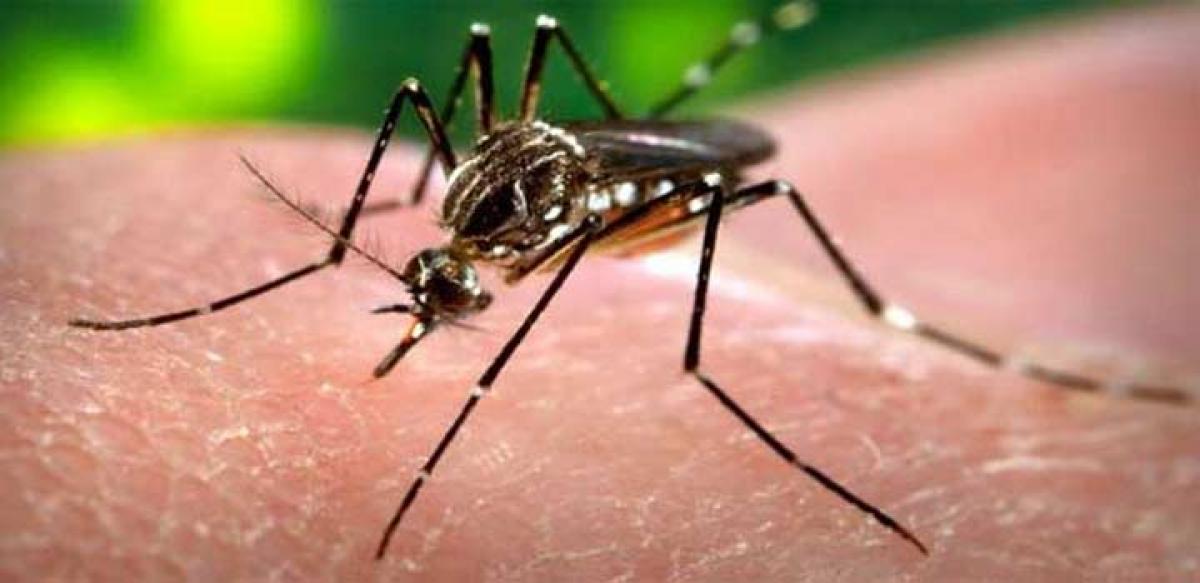Live
- Pilgrims throng Sabarimala temple on opening day of long festive season
- Jwala Thoranam held at Srisailam temple
- Birsa Munda Jayanti celebrated
- Another tigress released in soft enclosure in Similipal
- Coastal defence exercise on Nov 20-21
- Budget allocated for Perur reservoir rekindles farmers’ hope
- Majhi to embark on 4-day Singapore trip
- 22 Balaji MBA College students secure jobs
- Panel to resolve inter-State disputes
- Matric exam from Feb 21 to March 6
Just In

Decoded: How dengue uses human enzyme to spread faster. In a pioneering feat, Brazilian scientists have decoded how dengue virus binds to a human enzyme to replicate and spread faster in the body. NS1 is one of the seven proteins composing the dengue virus and more specifically its replication machinery.
In a pioneering feat, Brazilian scientists have decoded how dengue virus binds to a human enzyme to replicate and spread faster in the body. NS1 is one of the seven proteins composing the dengue virus and more specifically its replication machinery.
.jpg)
It is an abundant protein detected in the serum of infected patients and used as a target for early detection. Without NS1, the virus cannot replicate whereas NS1 mutation decreases virus yield. Using a unique technique, the team found that the viral protein that NS1 binds to is well-known to any cell biologist is called “GAPDH”.
GAPDH is an enzyme involved in process where the glucose is broken down to generate energy in humans. The enzyme is ubiquitous and very abundant in animal cells and is also involved in non-metabolic processes such as control of gene expression.
Because GAPD is so abundant in the cell, the group also performed other complementing tests to confirm that the binding between NS1 and GAPDH is specific and not a spurious finding. “As obligatory parasites, viruses rely on the host metabolism to obtain what they need to generate their progeny.
We show that in human cells, NS1 binds to GAPDH as a way to increase energy production to be used for viral replication,” explained Dr Ronaldo Mohana Borges from the Federal University of Rio de Janeiro (UFRJ). Indeed, energy production modulation is a remarkable feature that improves the energy supply required for supporting active viral replication, he added.
The authors hypothesise that NS1 modulates the host metabolism by increasing GAPDH activity early on in the course of infection and, thus, should be considered as an important target for the development of new drugs to treat dengue. Dengue is a mosquito-borne tropical disease currently endemic in more than 10 countries, including India.
According to the World Health Organisation (WHO), 390 million people are infected by dengue every year. The disease can be caused by one of the four types of dengue virus transmitted by the Aedes aegypty mosquito, the main vector for dengue.
In humans, symptoms of dengue infection include fever, headache, muscle and joint pain and a characteristic skin rash. In some cases, dengue infection can take a dangerous turn and develop into a life-threatening hemorrhagic fever and dengue shock syndrome. (The paper has been published in the Journal of Virology.)

© 2024 Hyderabad Media House Limited/The Hans India. All rights reserved. Powered by hocalwire.com







